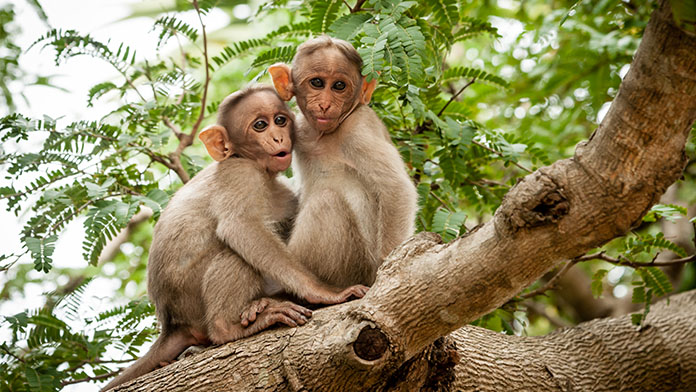Cases of monkeypox could rise again. The alarm comes from the European Center for Disease Prevention and Control of the European Union. The reason is to be found in the intensification of travel and in the spirit of freedom, including sexual freedom, which holidays represent. The vaccination levels of the categories most at risk are good in Italy, but attention must remain high.
So let’s do some clarity together with Antonella Chestnuthead of infectious diseases at the IRCCS San Raffaele Hospital, full professor of infectious diseases at the Vita-Salute San Raffaele University and member of the coordination of the Lombardy Region task force on monkeypox.
Professor Castagna, what kind of disease is monkeypox?
«It is an infectious disease caused by Monkeypox virus (MPXV), a virus of animal origin which was observed for the first time in monkeys in a Danish laboratory in 1958, while the first case in humans was diagnosed in Congo in 1970. It is to be precise an Orthopoxvirus, a virus that does not mutate very quickly, but remains rather stable over time. Two strains are known, one associated with greater clinical severity, identified in outbreaks in the Congo Basin, and a less severe one, widespread in West Africa. Luckily for us, what is circulating in Europe and the United States is the least aggressive strain, which causes a benign disease, basically self-limiting, with a low complication rate and less than 1% lethality».
What are the symptoms of monkeypox?
“The most common are fever, drowsiness, enlarged lymph nodes, muscle aches e heachache. The most characteristic element are the skin rashes, small erythematous lesions that become vesicles similar to those of chickenpox: they mainly affect the genital and peri-anal areas, but can also appear in the oropharyngeal cavity, on the trunk, arms, legs, face, palms of the hands and soles of the feet. Sometimes the lesions are so small and few in number that they go unnoticed, more rarely they can cover the whole body. In rare cases, the symptoms are severe enough to require hospitalization. More serious complications include encephalitis, myocarditis e pneumonia. These are clinical observations deduced from epidemic outbreaks reported in the past, fortunately, despite the surge in cases we have witnessed, deaths have been very rare to date”.
How is the virus transmitted?
«The methods of transmission are still to be defined exactly. It seems that the main route of contagion is the one for direct contact with vesicles, which contain a virulent fluid within them. Several studies have highlighted the presence of viral particles also in saliva, sperm and genital secretions, but it still remains to be understood whether they are real vehicles of infection”.
How long does the incubation last? And how long is it contagious?
“The incubation lasts an average of 10-12 days, but in some cases it can be up to three weeks. The infective period should be considered from the onset of the first symptoms until the scabs of all lesions fall off, just as in the case of chickenpox. Usually this happens within two or three weeks.
Is it possible to protect yourself from infection in sexual intercourse?
«The condom is always recommended but unfortunately it is not enough, because the virus does not spread only through sexual intercourse but probably through any form of close intimate contact, for example even kisses and hugs that lead to come into contact with the blisters present in the mouth or on the rest of the body. For this reason it is recommended to avoid relationships with multiple and casual partners».
Is it true that monkeypox primarily affects men who have sex with men?
«So far these subjects represent the majority of cases, but not all: for this reason it is incorrect to speak of categories at risk or think that the problem only affects homosexuals. In reality, what predisposes to infection are behaviors, above all having close and intimate contacts with multiple partners: this applies to men as well as women”.
Is there a monkeypox vaccine? And who has to do it?
“We have the vaccino Imvanex/Jynneos, which contains an attenuated form of a virus related to the Monkeypox virus, but which is unable to replicate in human cells or cause disease. It is administered in two doses at least eight weeks apart. It is indicated for laboratory personnel who risk coming into contact with the virus and above all for gay, transgender, bisexual people and men who have risky behaviors, such as frequenting multiple partners or the presence of recent sexually transmitted infections such as syphilis , chlamydia or gonorrhea”.
What should you do if you come in close contact with a person who has monkeypox?
“At the moment the guidelines do not mandate quarantine. Obviously the advice is to behave responsibly, practice good hygiene and remain vigilant, to promptly notify the doctor of any onset of symptoms.
Is there a test to diagnose the disease?
“Generally you run a molecular swab by taking the exudate of the lesions present on the skin, in the mouth, at the anal level: as for Covid-19, also in this case the result arrives within 24-48 hours and involves a notification to the health authorities. From that moment we are placed in isolation until all injuries have completely healed. Current indications do not provide for repeating the swab once all the lesions have healed.
What therapies are prescribed by the doctor?
«In most cases, anti-inflammatories such as la tachypirine to control fever and pain. The lesions evolve and heal spontaneously, it is not necessary to use topical products. The important is keep the skin clean ed avoid sharing towels and other items with people living together, in order to reduce the risk of contagion. In the presence of more severe forms of monkeypox (when there are many vesicles which also affect the mucous membranes or which affect delicate points such as the conjunctiva) a specific antiviral is indicated, tecovirimat: it is an oral drug that is picked up in the hospital and taken at home for 14 days. If it is not available, another antiviral can also be used, cidofovirwhich requires a single intravenous administration in hospital, possibly repeatable in the following weeks”.
Is it true that the virus can be transmitted to pets?
“At the moment only one case of transmission of the virus from two infected men to their dog has been documented. However, we know that several animals represent a natural reservoir of the virus: not only monkeys, but also rodents. For now, however, there is no element of particular concern and the only recommendation for positive patients in isolation is to keep a distance not only from people, but also from their pets as a precaution”.

